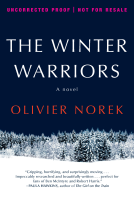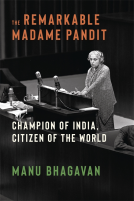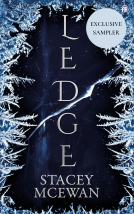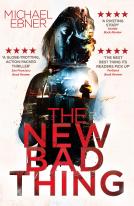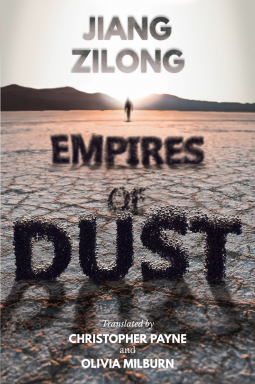
Empires of Dust
by Jiang Zilong
This title was previously available on NetGalley and is now archived.
Send NetGalley books directly to your Kindle or Kindle app
1
To read on a Kindle or Kindle app, please add kindle@netgalley.com as an approved email address to receive files in your Amazon account. Click here for step-by-step instructions.
2
Also find your Kindle email address within your Amazon account, and enter it here.
Pub Date Mar 11 2019 | Archive Date Jun 12 2019
Alain Charles Asia Publishing | ACA Publishing Ltd
Talking about this book? Use #EmpiresOfDust #NetGalley. More hashtag tips!
Description
Empires of Dust follows the changes in rural life in China, starting from the era of Mao Zedong and then through the first thirty years of Deng Xiaoping’s policy of reform and opening up. The protagonist is a kind-hearted, hardworking and entrepreneurial peasant named Guo Cunxian who lives in an ordinary small village. He starts a business making coffins and eventually becomes rich, lifting his fellow villagers out of poverty in the process; however, the corrupting forces of money, desire and power threaten to destroy everything he has built.
When making coffins is the best business in town, what hope is there for tomorrow?
Amidst the maelstrom of Communist China’s rocky beginnings, Guojiadian, a tiny hamlet situated on salty ground in the rural northeast where nothing grows, must forge a path through the turbulence - both physical and political - threatening to return the windswept village to the dust from which it emerged.
Amongst the long-suffering village inhabitants lives Guo Cunxian, a man of rare ability trapped in an era of limitations. His quest for a better future for him and his family pits him against the jealousy of his peers, the indifference of his superiors and even the seemingly cursed earth upon which he resides.
In a decades-long journey filled with frustration and false starts, they eventually rise to dizzy heights built upon foundations as stable as the dust beneath their feet and the mud walls which shelter them.
But will their sacrifices along this tortuous path be in vain…?
Jiang Zilong was born in 1941 in Hebei province, northeast China, and spent his formative years in the countryside before moving to the city of Tianjin at the age of 14. He served an apprenticeship at a machine tool factory and then joined the navy in 1962. From 1965 to 1982, he worked at a factory in Tianjin, rising to the ranks of senior management and publishing his first written works on the side. He has been a full-time author since leaving the factory and became known as the founder of ‘Reform literature’, which deals with the policy of reform and opening up that was initiated by Deng Xiaoping following the death of Mao Zedong. Many of Jiang’s stories are set in the industrial world and examine the impact that the seismic socio-economic changes have had on the lives of ordinary Chinese citizens. His works have won national literary awards many times and been translated into multiple languages including English, French, German, Russian, Japanese and Spanish.
Advance Praise
"China’s recent history is expressed through extraordinary set pieces that would grace any global epic: floods, riots, famine, murder, quests and a modern nation’s creation myth." - SCMP
"China’s recent history is expressed through extraordinary set pieces that would grace any global epic: floods, riots, famine, murder, quests and a modern nation’s creation myth." - SCMP
Available Editions
| EDITION | Ebook |
| ISBN | 9781910760543 |
| PRICE | £6.99 (GBP) |
Average rating from 8 members
Featured Reviews
 Neil G, Reviewer
Neil G, Reviewer
First of all, my thanks to ACA Publishing for making an ARC of this book available to me via NetGalley.
I am by no means an expert on 20th Century Chinese history, but it is a subject that fascinates me every time I read a book about it. I read Yan Lianke’s “The Explosion Chronicles” and “The Four Books” and I read Madeleine Thien’s “Do Not Say We Have Nothing”. Regardless of how I felt about each of these books, all of them made me want to learn more about The Great Leap Forward and subsequent events in Chinese history. It is, of course, a very different world to my very British life, but it is a period that coincides very directly with my own life as I was born in 1960, right in the middle of The Great Leap Forward (although, of course, I didn’t know that at the time!).
First, a small word of warning. When I requested this book at NetGalley, I checked on Goodreads which told me it was 712 pages long. I know that is a long book, but it’s not much longer than, for example, The Gold Bug Variations by Richard Powers which was the book I read before this one. However, when I received the book, I discovered it is actually 913 pages long. Then, when I opened it, I discovered each of those 913 pages has more words on it than you would normally expect in a book. For the purposes of budgeting, you should think of this book as being 1200-1300 pages long.
But that is not a reason to turn away from it. If anything, it’s a reason to pick it up. Yes, there are times when you think it could move on a bit more quickly than it does, but if you are prepared to invest some time into this book what you get is an absorbing story covering several decades of Chinese history. You might like to see some of the Wikipedia articles I read as part of reading this book:
https://en.m.wikipedia.org/wiki/Eighth_Route_Army
https://en.m.wikipedia.org/wiki/Struggle_session
https://en.m.wikipedia.org/wiki/Learn_from_Dazhai_in_agriculture
https://en.m.wikipedia.org/wiki/Sent-down_youth
https://en.m.wikipedia.org/wiki/Socialist_Education_Movement
https://en.m.wikipedia.org/wiki/List_of_campaigns_of_the_Communist_Party_of_China
https://en.m.wikipedia.org/wiki/Chen_Yonggui
https://en.m.wikipedia.org/wiki/Xiaogang,_Anhui
Guo Cunxian is a peasant at the start of the book. He lives with extreme hunger and want. In his village, people die from starvation and malnutrition. That village, Guojiadian, is situated in the northeast of China in a region where nothing grows and the future seems bleak. We follow him through several decades along a path which, to a degree, follows that of The Explosion Chronicles already mentioned: Guo Cunxian is a man of rare abilities and he rises to extreme heights dragging his village with him, watching it grow in size and in wealth beyond what anyone could imagine. But, as the book blurb suggests, the foundations for that growth are not stable and disaster is looking for an opportunity to strike.
Several years ago, I spent an hour each week in the company of Tony Soprano. I’m talking, of course, about a TV series: The Sopranos. I watched Tony rise up through an organisation. I watched him wrestle with political issues and family issues. I watched him gain and lose friends, make and destroy enemies. At many times as I read this book, I was reminded of the time I spent watching that TV series. The setting is different, the people are different, but there is something about Guo Cunxian that reminded me of Tony Soprano. I found this book a compelling character study.
But it is not all about Guo Cunxian. We see other characters, whether relatives or other villagers, and we watch them jostle for position, rise and fall, succeed and fail. Empires of Dust would make a magnificent television series. Guo Cunxian’s uncle Guo Jingshi brings a bit of mystery and magic to proceedings. He drops in and out of the story, but always bringing something mystical and strange to the party. Women are treated badly in this book, but that does not stop some of them featuring as strong characters in their own right, even up to the final slightly ambiguous pages.
If you are interested in the recent history of China, this is a book worth committing time too. It will take you a long time to read it, but you will watch a man struggling to make the best of what life has dealt him as you also watch China progress through several decades of turbulence and change.
Why only four stars? Well, I have a couple of minor quibbles. Firstly, and I know this is a personal hobby horse of mine that would not bother most people, the book continually treats envy and jealousy as synonyms (I had a go at none other than Rachel Cusk about the same thing!). I wish I could learn to ignore this, but I do find it off-putting. It won't worry most people. There were some timing issues that only bothered me because I was using references to events as a means of tracking where we were up to in history and some of them I found tricky to align.
These are minor details, I know. They don’t spoil the overall story, but for someone as picky as I am, they do just take the gloss off.
Overall, I am glad I invested almost two weeks of my reading time in this book. I enjoyed reading it and I learned a lot about China over the last 50-60 years, so I would recommend it to others albeit with a warning about the length.
